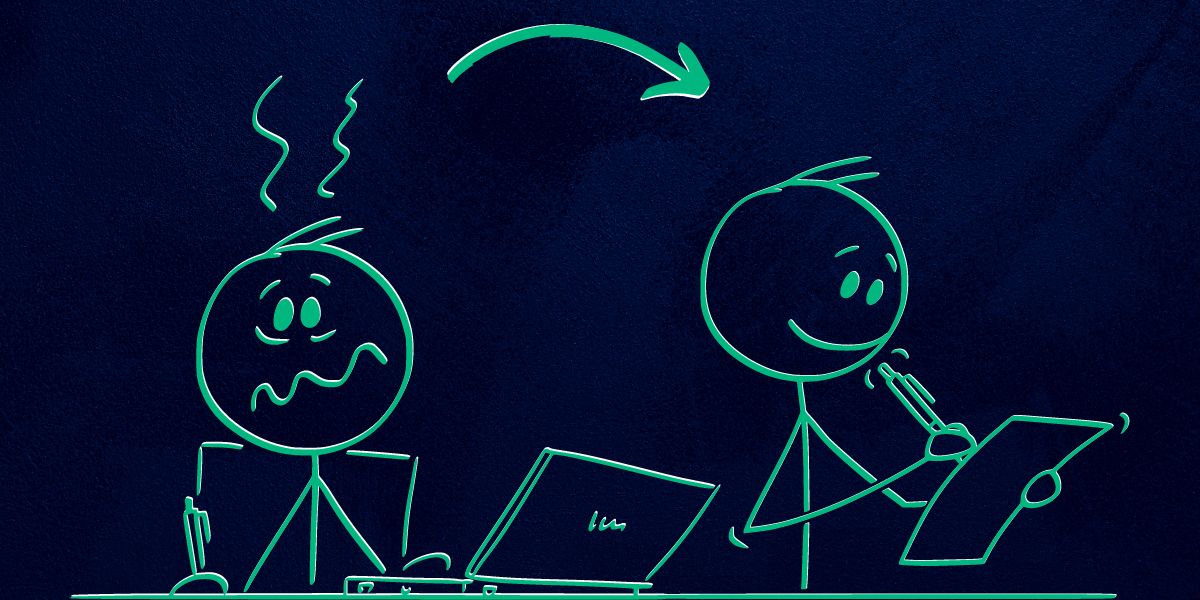The British Stiff Upper Lip & Workplace Stress: Time To Rethink How We Cope?
In this blog, we will be going through the general attitude as of now when it comes to stress in the workplace, followed by the importance of...
Got a question, or need help with something?
A member of the LoudLocal team is on hand to help you.
The Brickyard, Unit 2, Queen's Rd, Kenilworth, Warwickshire, CV8 1JQ
5 Merchant Square, Paddington, London, W2 1AY
Mental health in the workplace - why does it matter? Almost all of us will experience some form of poor mental health in our lifetimes, yet the British Medical Association (BMA) has found that 9 out of 10 who experience mental health problems say they face stigma and discrimination as a result.
Whilst the conversation around mental health has made leaps and bounds in recent years, the topic of mental health in the workplace is still limited in its scope. Many fear that sharing their mental health concerns with their employer will negatively affect them in a work environment where performance and competition are greatly valued.
With work representing such a massive chunk of our lives, it has never been more critical to talk about the importance of mental health in the workplace and attempt to dismantle the stigma surrounding it.

Making your well-being a priority in the workplace has never been so important at a time when the boundaries between work and home have become increasingly blurred. Mental health charity Mind has reported that as many as one in six workers experience mental health problems, with anxiety and depression being the most commonly diagnosed across the board.
Recognising work-related risk factors to your mental health will potentially avoid poor spouts of mental health and maintain healthy work habits.
Some of these risk factors may include:
All of these factors ultimately result in burnout, with 46% of UK workers feeling ‘more prone to stress’ than in comparison to the year before.
.png?width=307&height=307&name=worklife%20balance%20blog%20visual%20(1).png)

There is an abundance of ways to support your mental health at work - what matters is prioritising ways of managing your well-being that works for you.

Poor mental health in the workplace doesn’t just affect individuals; it also disrupts teamwork and breaks down communication between colleagues. This, in turn, impacts productivity team-wide, meaning it is in the best interest of employers to prioritise positive mental well-being within the workplace.
Of course, each industry has individual demands and with it, its own specific workplace stress. Studies have shown that health and social care is the most stressful industry to work in, whilst workload has unsurprisingly been shown to be the leading cause of workplace stress more generally. Digital marketing specifically has its own array of workplace stresses - including anxieties surrounding the performance of campaigns and maintaining the ,often high, expectations of clients. By identifying the factors that contribute to workplace stress, we can begin to recognise when stress begins to arise and ensure we have the facilities to mediate it.
The stigma of mental health in the workplace and its detrimental impacts can be dismantled by supporting positive mental health in the workplace and educating your team on how to identify situations that may threaten their mental well-being. One of the most important things you can do for yourself is prioritise your emotional well-being. And, with work playing a larger role in our lives than ever before, employers should place a greater emphasis on prioritising their team's mental health. Does your workplace have any industry-related stress factors? What do you think you could do to help mediate some of the symptoms of poor mental wellbeing in your workplace?

In this blog, we will be going through the general attitude as of now when it comes to stress in the workplace, followed by the importance of...

6 min read
Since the pandemic, the number of e-commerce websites has exploded. Many traditional retailers who previously benefited from having a...

1 min read
Why are SEO and Blogs Important? When writing a blog, the aim is to create content that attracts and keeps your audience interested, but with so many...